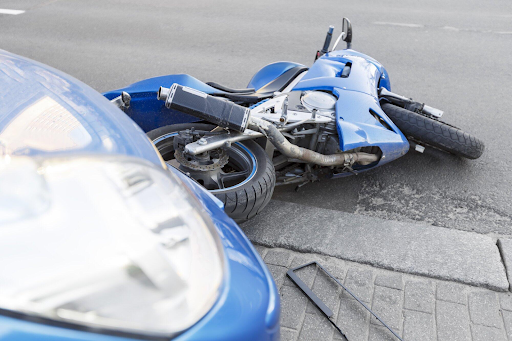Navigating the aftermath of motorcycle accident claims is no easy task. It’s a complex journey filled with physical, emotional, and legal challenges. But fear not! We’re here to guide you through it all.
We’ll delve into the art of weaving together a narrative of truth, rights, and justice. Get ready to discover the importance of evidence gathering. Explore its various forms and unlock strategies for effective collection and preservation.
Let’s dive in and empower you to face the aftermath with confidence!
Why Gathering Evidence is Crucial
Evidence plays a crucial role in the court of law, speaking volumes with its objectivity. It supports the victim’s account, enhances credibility, and helps piece together events. If you’re preparing for a motorcycle accident lawsuit in Phoenix, gathering evidence must be your top priority.
Here are the reasons why it’s important to gather evidence after a motorcycle accident:
Establishing Liability and Fault
In the dance of legal jargon, “liability” and “fault” are not words; they are the core determinants of who pays for damages. A motorcycle accident lawsuit often paints a gloomy picture. Riders are perceived as more vulnerable and courts can have a nuanced approach to assigning blame.
To protect your rights, gathering evidence that clarifies the circumstances of the accident is your duty. Witness accounts, skid marks, and vehicle positions at the point of collision can turn scenarios into clear events. Without these pieces of evidence, convincing an insurer or a jury could be an uphill battle.
Strengthening Your Case
Personal injury is a battleground where every detail is contested. A robust case needs more than a story; it needs verifiable facts. Evidence obtained on-site, and in the immediate aftermath of the accident, is often the most persuasive.
Expert opinions, medical evaluations, and accident reconstructions solidify the argument for compensation. Without these, your case may resemble a castle in ruins, impressive in history but vulnerable in practice.
Supporting Your Claims
In the courtroom or at the negotiation table, claims can appear as mere assertions. The burden of proof lies with you, and without evidence to back up your statements, your claims hold little weight.
Whether it’s lost wages, medical expenses, or emotional suffering. Be it a pay stub, a hospital bill, or a journal detailing your trauma. The evidence will be your scaffold that upholds the financial aspects of your claim.
Dealing with Insurance Companies
Insurance adjusters are savvy negotiators trained to sift through claims with a skeptical eye. They know that in their world, evidence reigns supreme. Having a wealth of documentation can elevate your negotiation position.
Without evidence revealing the extent of your injuries and the true cost of your suffering, adjusters may lowball their offers, capitalizing on your vulnerability. In the world of negotiation, evidence is the shield that wards off unjust settlements.
Types of Evidence to Collect
The specificity of motorcycle accidents necessitates a comprehensive approach to evidence. Every iota of material, every uttered word, is valuable in your claim.
Accurate and Detailed Accident Reports
The official crash report is where the evidentiary journey begins. Accuracy here is not preferred; it is crucial. Ensure all information aligns with the truth as you understand it. Errors in these reports can be corrected but are much like a nail in a board – once bent, their integrity is compromised.
Witness Statements and Contact Information
Vivacious and unbiased, witness testimony can be the clincher in a dispute. Gathering this testimony means acquiring addresses and phone numbers. This ensures that these crucial voices can be summoned when needed. Memories fade and change; the potency of a testimony lessens over time.
Photographic and Video Evidence
In an era of smartphones and dashcams, the ability to capture moments is unprecedented. Every angle, every scrape, and documented images ensure that none can erase, distort, or dispute the physical reality of the wreck.
Medical Records and Bills
When medical evidence is on your side, the recovery path becomes clearer. Doctors’ evaluations, X-ray reports, and therapy bills – these are not only indicators of your pain but also the impact on your daily life and your financial standing.
Repair Estimates and Invoices
A straightened fender or a new set of wheels can speak volumes. Official estimates and repair invoices paint a precise picture of the material damage you’ve suffered, demanding restitution on tangible terms.
Tips for Collecting and Preserving Evidence
As we progress, we will outline practical tips for collecting and preserving evidence critical for substantiating your motorcycle accident claim. These tips are designed to prepare you for success, laying the foundation for a compelling narrative that aligns with the principles of justice and facilitates a fair resolution.
Document the Accident Scene
A camera at the scene is as vital as a helmet on the road. After ensuring everyone’s safety, take pictures from every conceivable angle. Close-ups and wide shots, of all vehicles involved, can prove fundamental in reconstructing the accident later on.
Gather Witness Testimonies
The human voice is your most potent evidence. Approach bystanders, and other drivers, and record their version of events. Ensure they understand the gravity of their role as a defender of the truth.
Preserve Physical Evidence
Spare nothing you’ve touched, worn, or used on the day of the accident. Personal belongings, and clothing – all preserved and untouched – can be crucial in reconstructing the circumstances of the wreck.
Keep a Detailed Accident Journal
Every detail recollected and noted is a safeguard against the fallibility of human memory. The date and time of the accident, your immediate actions, and the events right up until now should be detailed in a dedicated journal of the accident.
Consult with Professionals
Motorcycle accident lawyers and investigators know the value of clarity in evidence. Their guidance can ensure you collect what’s vital and discard what’s not. Seek their advice to tailor efficient evidence-gathering.
Navigating the Road to Justice in Motorcycle Accident Claims
In the realm of motorcycle accident claims, evidence is the key to securing compensation and returning to a normal life. For motorcycle riders, staying vigilant on the road means preparing for the worst and ensuring justice can be served.
Gathering evidence is an empowering act of self-advocacy, protecting our rights as we journey the legal roads. Let our helmets guard our minds, and evidence protect our rights.
Head over to our blog for more helpful reads like this.






